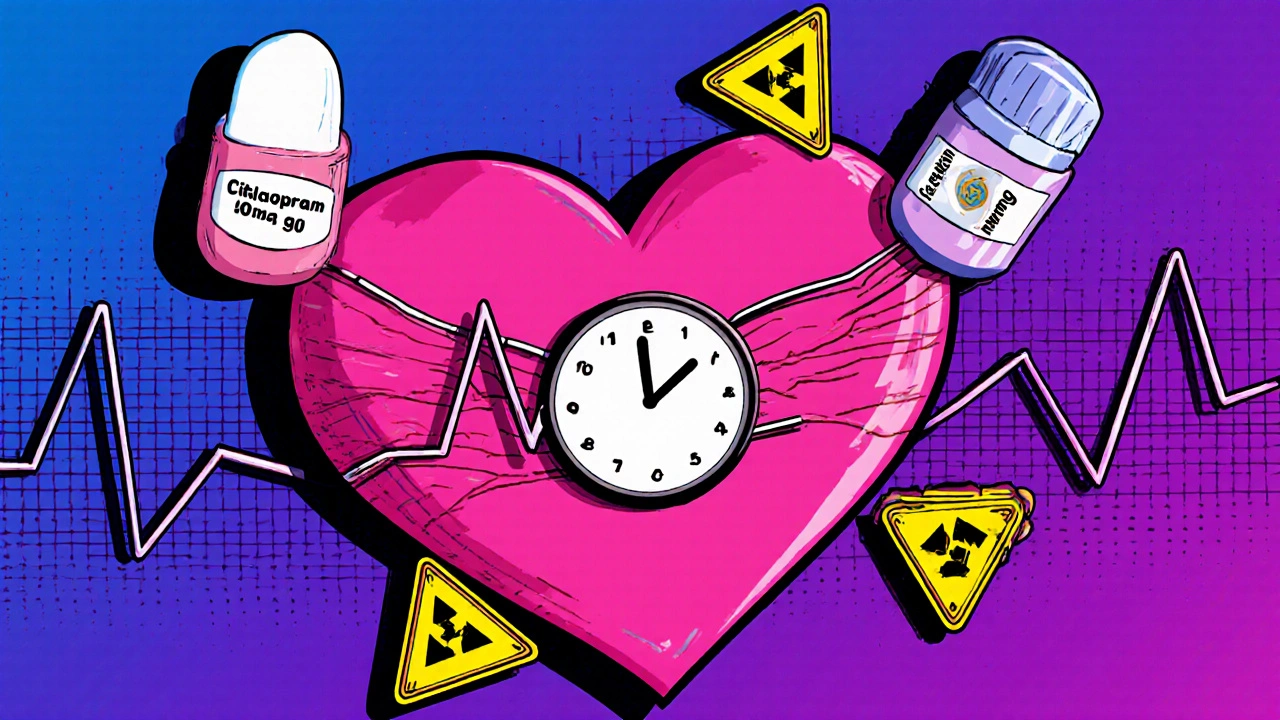QT Interval Antidepressants: Risks, Alternatives, and What You Need to Know
When you take an QT interval antidepressants, antidepressant medications that can delay the heart’s electrical recovery phase, increasing the risk of life-threatening arrhythmias. Also known as drugs associated with QT prolongation, these medications affect how your heart resets after each beat — and for some people, that delay can be dangerous. This isn’t theoretical. Studies show certain antidepressants can push the QT interval beyond safe limits, especially when combined with other drugs, in older adults, or in people with existing heart conditions.
The real concern lies with tricyclic antidepressants, older-generation antidepressants like amitriptyline and imipramine that block multiple nerve receptors and are known to interfere with heart rhythm. These drugs are still prescribed, but their use has dropped sharply because of this risk. Even SSRIs, selective serotonin reuptake inhibitors like citalopram and escitalopram, which are generally safer, can cause QT prolongation at high doses. Citalopram above 40 mg daily? That’s a red flag. Escitalopram above 20 mg? Same issue. And when you mix these with antibiotics, antifungals, or even some heart meds, the risk multiplies.
It’s not just about the drug itself — it’s about who’s taking it. People over 65, those with low potassium or magnesium, anyone with a history of heart rhythm problems, or those on multiple medications are at higher risk. A simple EKG can check your QT interval before starting or changing antidepressants. Many doctors skip this step, assuming all antidepressants are equally safe. They’re not. And if you’ve ever felt your heart skip, flutter, or race unexpectedly while on an antidepressant, that’s not just anxiety — it could be your heart trying to tell you something.
There are safer options. Bupropion doesn’t affect the QT interval at all. Sertraline and venlafaxine have minimal risk at standard doses. If you’re on a high-risk antidepressant and your doctor hasn’t checked your heart rhythm lately, ask. Bring up the QT interval. Ask for a baseline EKG. If you’re on multiple meds, get a full drug interaction review. You don’t need to stop your antidepressant — but you do need to know if it’s safe for your heart.
Below, you’ll find real-world guides on how these drugs interact with others, who’s most vulnerable, and what alternatives actually work — no fluff, no jargon, just clear facts from patients and doctors who’ve been there.
Citalopram and Escitalopram: QT Prolongation Risks and Safe Dose Limits
Citalopram and escitalopram can prolong the QT interval, raising heart rhythm risks. Learn the safe dose limits, who's most at risk, and how these SSRIs compare to other antidepressants for cardiac safety.
